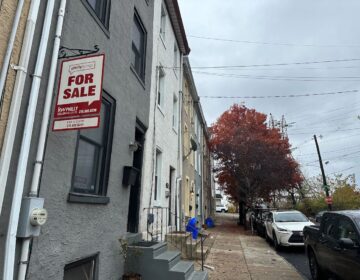More Philly landlords are marketing units to renters with housing vouchers amid building boom, PHA changes
A collision of market forces and higher subsidies is creating new opportunities for residents with very low incomes.
Listen 4:45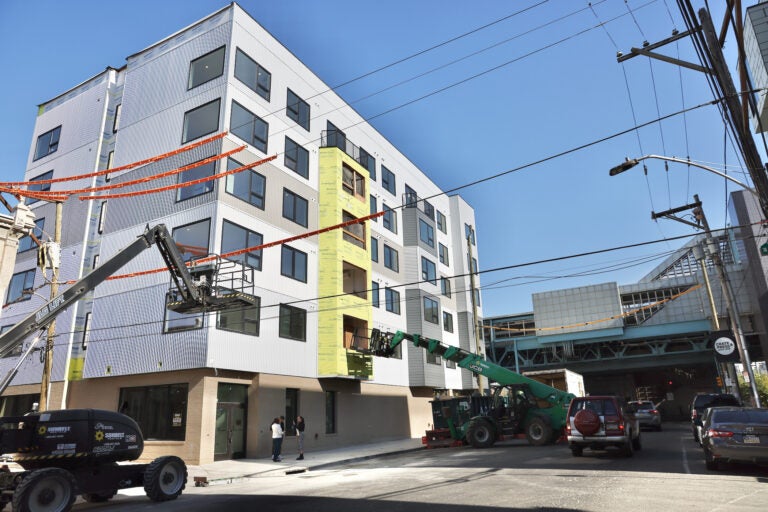
The Isaac, a 105-unit apartment building near the Berks station on the Market Frankford Line, will be ready for move-ins Dec. 1, according to the HOW Group. (Emma Lee/WHYY)
Have a question about Philly’s neighborhoods or the systems that shape them? PlanPhilly reporters want to hear from you! Ask us a question or send us a story idea you think we should cover.
Shakeema Smith’s eyes light up when she talks about the five-bedroom place she rents at Wister Court Apartments with the help of a housing voucher.
Over the past decade, Smith and her family have lived in a handful of places. But none were as nice or as big as the bi-level apartment they moved into last November. And none of them felt as safe or private.
The gated complex in East Germantown was also close enough to the family’s last rental that Smith’s son and grandson didn’t have to transfer schools.
“We basically got a better place in a better neighborhood,” said Smith. “I don’t see me going nowhere no time soon.”
Smith’s experience is becoming more common for voucher holders in Philadelphia, where about 19,500 residents rely on the federal subsidy to keep a roof over their heads during an affordable housing crisis.
That’s because more landlords are advertising their units to voucher holders, many in the face of increased vacancy rates at market-rate apartment buildings, particularly at newer properties in hot neighborhoods like Fishtown and Northern Liberties.
Between 2021 and 2023, Philadelphia saw a spike in construction starts after a bevy of real estate developers lined up to beat changes to the city’s property tax abatement program. The building boom created a rare apartment glut, spurring a level of competition that has made it more challenging for landlords to lease up their higher-end properties.
“Everybody’s coming online now,” said Kelli Tomczack, vice president of property management for The HOW Group. “We needed to change strategies to expand our prospect pool.”
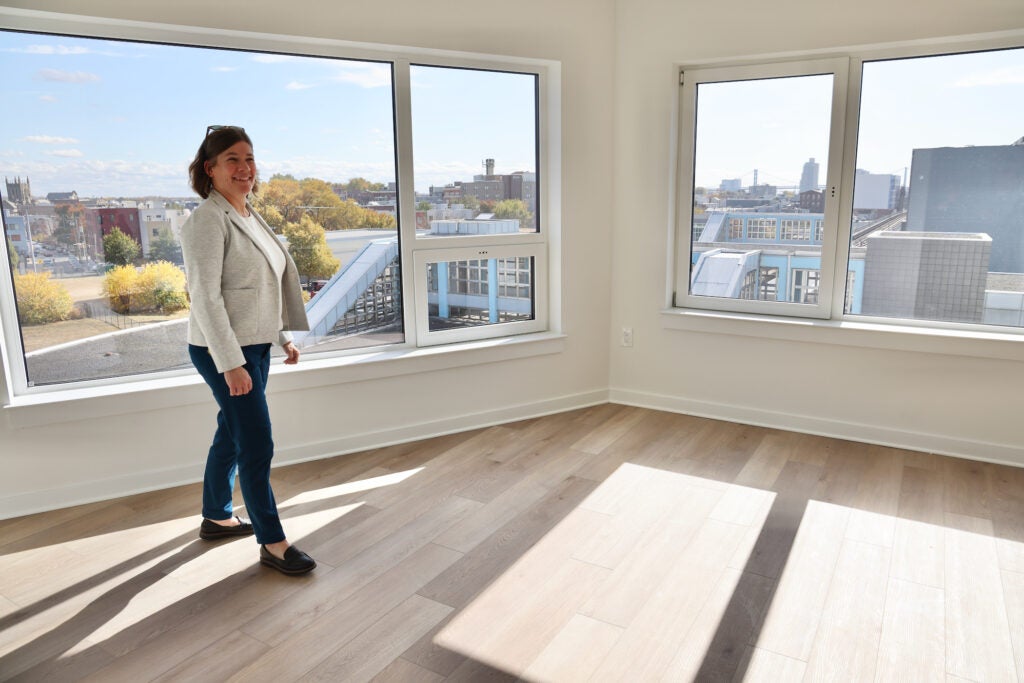
During a period of high demand, some landlords have turned to concessions like reduced rent with hopes of attracting tenants, while others like The HOW Group have turned to the Housing Choice Voucher Program, often for the first time.
The HOW Group started marketing to voucher holders in 2022 and now has more than 60 tenants enrolled in the program, including many at Wister Court. The Isaac, a 105-unit apartment building set to open in Fishtown, will also be available to voucher holders.
“In terms of the mission, we just want to provide everybody with a place to call home that’s safe and something that they can be proud of,” said Tomczak.
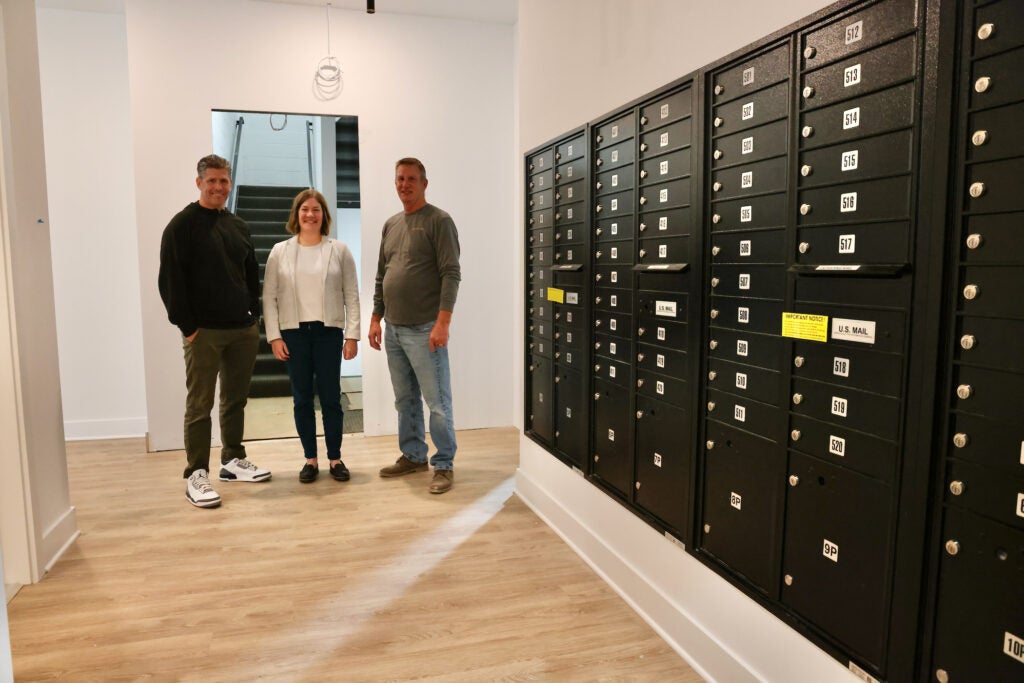
Making things better
Formerly known as Section 8, the Housing Choice Voucher Program enables residents with very low incomes to rent apartments on the private market at a deep discount — if a landlord agrees to take them on as a tenant. Through the Philadelphia Housing Authority, the federal government covers 70% or more of a family’s monthly rent.
The money is guaranteed.
Landlords in the city have historically been hesitant to rent to voucher holders. Corporate property owners have been sued for openly discriminating against program participants, violating city law. But policy changes at PHA have helped entice some landlords to join the program, including those looking for ways to counter the increased competition.
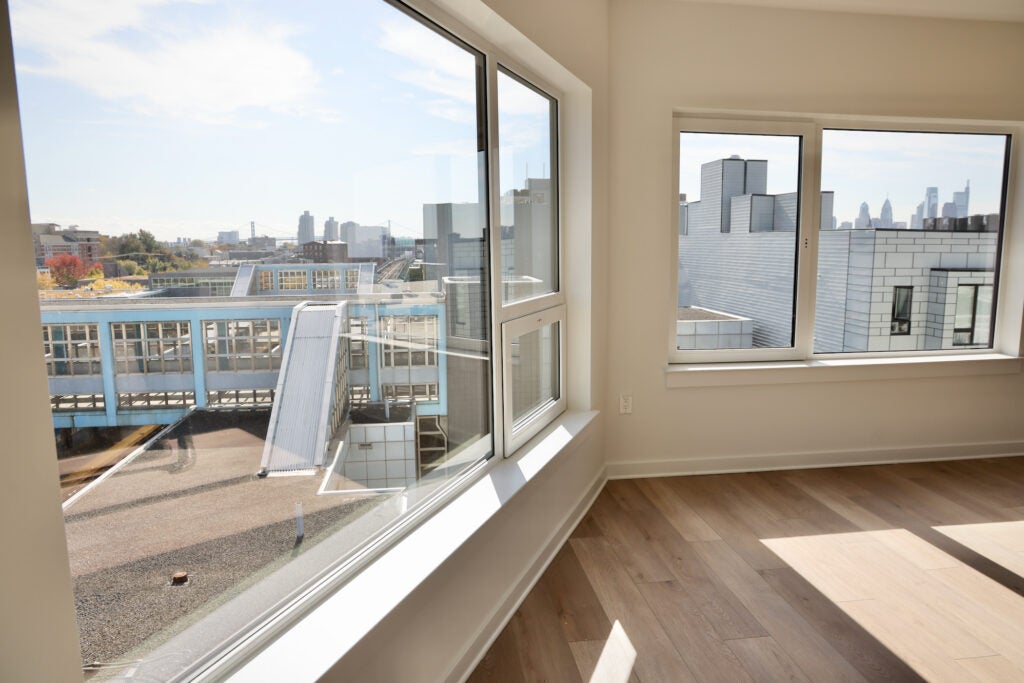
In 2018, PHA got the authority to base its rental rates on the property’s ZIP code. That meant that voucher holders now had the opportunity to become tenants in pricier neighborhoods — neighborhoods that were often out of reach because there wasn’t enough subsidy to cover the typical asking prices in those areas.
The shift means voucher holders now have more apartments to choose from. It’s hoped that will help reduce the time it takes participants to find a place to live, an often consuming process that takes months to complete.
“The subsidy has gone up and so we’re passing that down to our clients and ultimately to the landlords,” said PHA President Kelvin Jeremiah. “We want our families to live in communities where they can live with respect and dignity.”

PHA also made changes that have significantly reduced the amount of time it takes for a tenant to get to moving day.
After a voucher holder finds an apartment, the landlord has to submit the required paperwork and may need to complete a certification training. The authority must also inspect the unit and determine the rent.
Those steps used to take at least 75 to 120 days to complete. It now takes 35 to 40 days, meaning landlords don’t have to wait as long to start collecting rent.
All of it is part of a concerted outreach campaign designed to attract new landlords to the program. The authority also continues to offer incentives to new participants and is working closely with the Building Industry Association of Philadelphia to bolster the effort, which also included input from City Councilmembers Jamie Gauthier and Rue Landau.
Making the move-in process for voucher holders more efficient was one of the major fruits of that partnership.
“We found that there is stuff that we can actually resolve. There are man-made processes that we can adjust and make things better,” said BIA President Mohamed Rushdy. He said his members were not avoiding the program because of the stigma it has historically carried.
Over the last two years, more than 2,000 units have been added to the voucher program, primarily from BIA members, said Jeremiah. Rushdy’s development company, Riverwards Group, will market 420 new units to voucher holders over the next year.
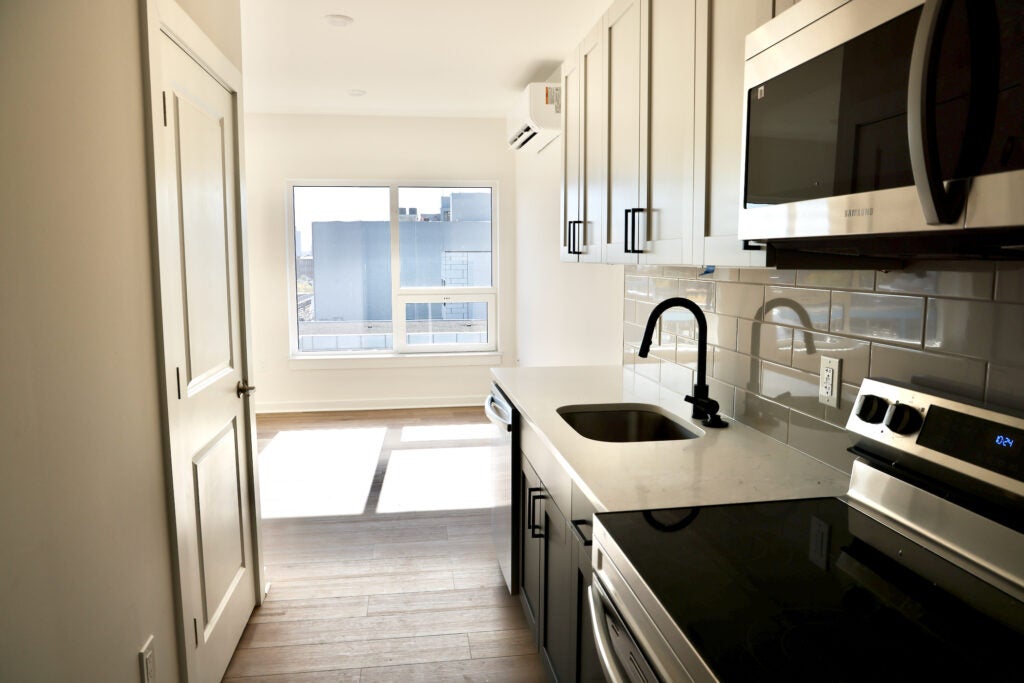
The most common tenants remain single mothers with children. But Jeremiah said the group as a whole “runs the gamut” from veterans to senior citizens.
To Rushdy, there’s no reason to think this trend won’t continue — even when vacancy rates start coming down and competition for tenants is less fierce as a result.
The rate currently sits at 10.5% for commercial apartment buildings in the city with more than five units, according to the CoStar Group. It was 5.9% in 2021.
“The glut may have opened up the eyes … but the continuation of it lies on the reimbursement rate along with the ease of process,” said Rushdy.

Subscribe to PlanPhilly
WHYY is your source for fact-based, in-depth journalism and information. As a nonprofit organization, we rely on financial support from readers like you. Please give today.







